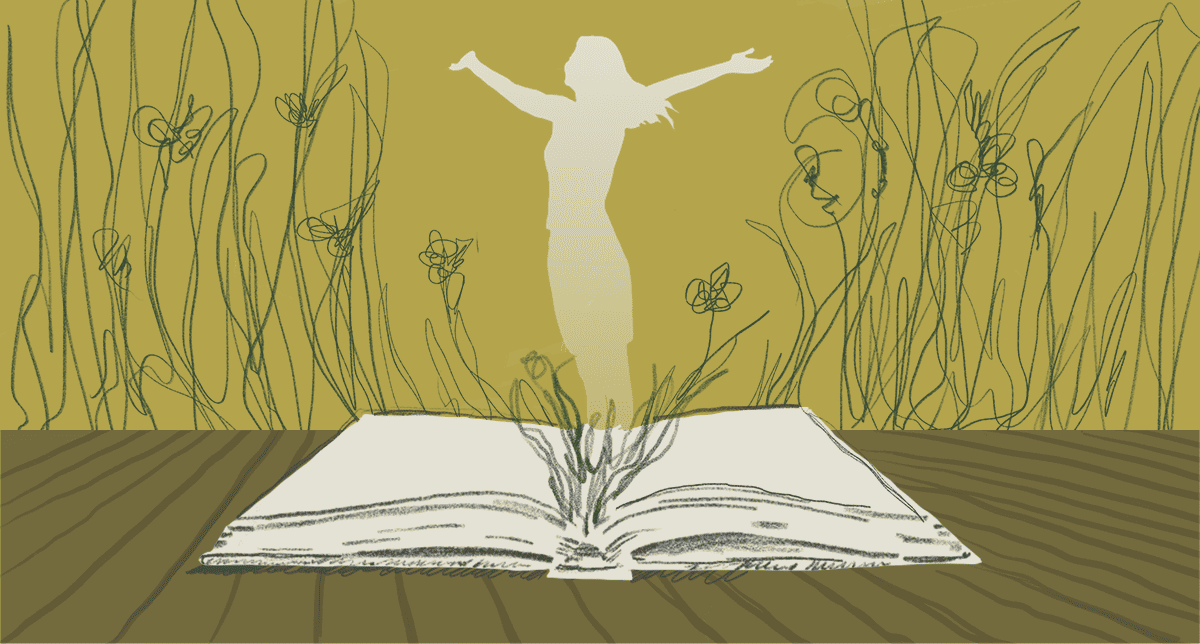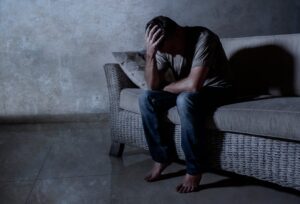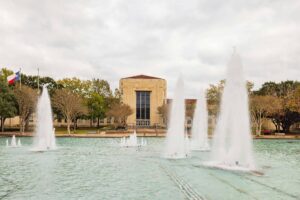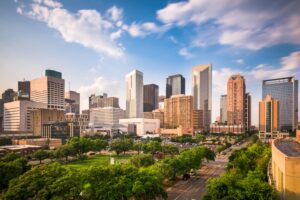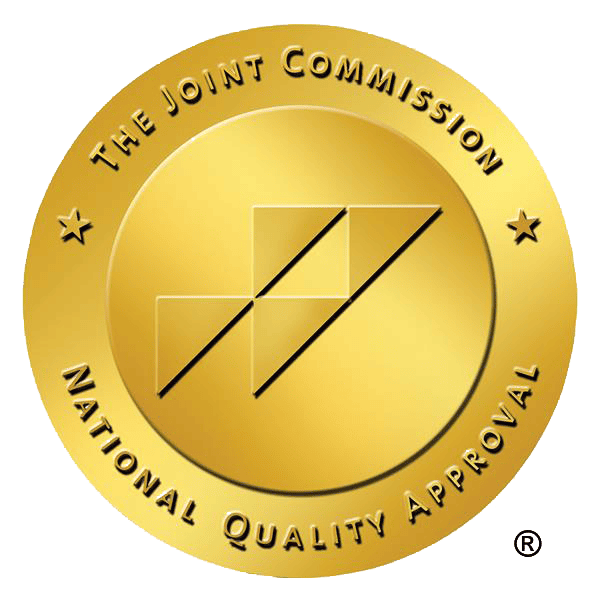I grew up in a household of tea totalers—folks that don’t drink any alcohol. We were a very religious family, and I was a late bloomer. I may have had a first drink or two in high school, but it was nothing memorable. In my early 20’s, I drank socially and partied a bit with cocaine, but I didn’t struggle with addiction until I hit 28
I was married with a three year old son, and I contracted spinal meningitis. I went into the hospital, and a series of health events hit me hard. My organs began failing, I slipped into a coma for a period of time, and that hospital stay turned into ten months straight. During those ten months, the nurses were coming into my room every four hours with a shot of morphine or demerol, due to the pain. I don’t place any blame on the medical community—this was 1988, and we didn’t have the education or understanding around controlled substances and addiction that we do now, but when I finally left, they gave me copious amounts of refills for narcotics. In those ten months plus the two years that followed, I became not only dependent, but very addicted to these substances.
What changed for me back then was an ultimatum from my husband. “You’ve got to get it together,” he said. We didn’t know anything about treatment facilities, rehab, Alcoholics Anonymous… anything. He took off work for two weeks and basically nursed me through detox, and I got clean. I remained clean and sober for some years without a program or anything except church helping me through. Life began to get back to normal. We had a second child, another boy, and then my husband was diagnosed with leukemia.
"Life began to get back to normal. We had a second child, another boy, and then my husband was diagnosed with leukemia"
I went back to my doctor and was prescribed klonopin for anxiety, and pretty soon I was doctor-shopping and taking everything I could get my hands on. My husband was sick in the hospital for an entire year, and for a significant part of that time, I wasn’t emotionally present because I was over-medicating to deal with the pain and the thought of losing him.
He died one year to the day after being diagnosed in 1992. A week after we buried him, I came home to an intervention from my family. They had arranged for me to go to a treatment facility in Dallas, and I was so emotionally exhausted from losing my husband, it really sounded like a nice little retreat at that time. I didn’t know what it meant, but I knew I needed to get away for a while. I checked myself into Baylor Hospital in Dallas where they had a great treatment program. I was there for one month, and while I don’t remember a lot about that time, I know it was my first introduction to AA through field trips to outside meetings.
Once I was discharged, I was so lonely, so scared, that I did exactly as they told me and went to 90 meetings in 90 days, just as instructed. Around the corner from my house in Plano was a little clubhouse referred to as the Little Green House. I would take my son to school, the other one to preschool, show up at the AA clubhouse and just do what they told me. The old timers threw some service work at me—cleaning ashtrays and being a greeter at the door. For the first 90 days, that was my full time job. While my kids were at school, I went to the club house and read the book, asked questions, went to the noon meeting, vacuumed, mopped, whatever I needed to do to keep from going home and being alone.
"Sooner or later, I’d stayed there long enough around folks who had the answers and a plan for living, a plan without drugs or alcohol, and I followed their lead"
Sooner or later, I’d stayed there long enough around folks who had the answers and a plan for living, a plan without drugs or alcohol, and I followed their lead. I went to meetings, and coffee after. I took my kids on group trips to the lake on weekends. I basically lived and breathed recovery within the rooms of Alcoholics Anonymous, and I started to gain some clarity. This was my life for over 12 years.
Eventually, I made the decision to move to Brehham to be near family. I sold my house and moved my kids. My sponsor in Plano had died, and I didn’t get a new one or get plugged into another AA community right away. My big book was somewhere in a moving box in the back of our new garage. When I finally went to a few meetings, I was very spiritually arrogant, comparing them to the meetings of where I came from, and in my mind they didn’t add up. I wasn’t working with others, I wasn’t connected. Gradually, I had quit doing all the things that kept me sober. It didn’t happen right away; it took about a year, but after moving further and further away from these habits, I became ill with pneumonia, and they gave me a prescription for codeine with ephedra.
I was off to the races—right back to where I was before I got sober. I began to doctor shop again, going all the way from College Station to Houston to get prescription narcotics. This was a time period when these systems weren’t connected; you could go to a new doctor or pharmacy, and they would have no idea what you had been prescribed by the last one. These substances weren’t nearly as controlled or monitored as they are now. I justified my actions with the thought that the doctor gave it to me. It’s not technically drugs, I thought, it’s medicine, but I wasn’t using it in that way.
One day, I got a knock on the door from the Sheriff’s department. They served me with a warrant for doctor-shopping, which is technically fraud. I checked myself into treatment again, skating my way through it. After approximately a year sober, I spent some time going back and forth, in and out of the program, never pulling together any real stretch of sobriety.
That relapse lasted seven years in total, and by the end, I had really burned my life to the ground. My daughter, my youngest, wasn’t speaking to me at all. My two boys were speaking to me, but not happy with me. I had ruined my relationship with them and with the rest of my family
"I was living in a little bitty town of around 230 people on a 100-acre farm, no neighbors for miles, and even that was just a little too crowded for me."
I was living in a little bitty town of around 230 people on a 100-acre farm, no neighbors for miles, and even that was just a little too crowded for me. Towards the end, I had isolated myself beyond belief.
The month before I decided to get sober, I had overdosed four times and unfortunately, this wasn’t unusual at all. It wasn’t an uncommon occurrence. At this time, I can honestly say I was okay with the idea of going to sleep and never waking up again. I was exhausted, and my disease was kicking my ass, to be frank.
One night, on June 23rd of 2014 around 2 a.m., I was dope-sick. I had nothing in the house. I was hungover, because at this point I had adopted alcoholism when I couldn’t find drugs. I was shaking, sweating, puking, cramping. I remember pulling the covers over my head and saying a little four-word prayer—one which I had said many times before: “God, please help me.” I fell asleep after that, shockingly, and when I woke up the next morning, I wasn’t sick, I wasn’t hungover, and my obsession to drink and do drugs had left me. I had said that prayer many times, usually in the eleventh hour, and it had never worked in that way. I believe that God knew it was the end of the road for me; it was now or never.
While I’m grateful to have an awareness of how incredibly blessed I am to have this happen, pride and ego will kill you, and I still thought I could stay sober on my own. I tried for about a month. I thought, I have the book. I don’t need anyone else; I can do this on my own. I read, and I spoke with an old friend in the program over the phone—probably wore her out, to be honest. She began working the steps with me. We had completed steps 1-3 (admitting we are powerless over drugs and alcohol and turning our will and life over to our higher power) and she told me to go into town and find some place to write my fourth. I’d written a fourth step before (a searching and fearless moral inventory of ourselves) but it’s such a big one, so large in volume, it can be overwhelming. This particular day, I pulled into the parking lot of a church. I didn’t have a pen or any paper—just a hamburger bag and an eyeliner pencil. I wrote my fourth step on the back of that greasy bag and called my friend to do the fifth step (admitting to God, ourselves and another human being the exact nature of our wrongs) in a matter of minutes. She said, “Now go to a meeting.”
Coincidentally, the church whose parking lot I was in had an AA meeting starting in five minutes. Pride and ego told me to go in there and act like I’d never left the program, which is hysterical and ironic because my name had been in the paper for a felony conviction (that’s how powerful pride and ego can be). I walked in and sat down, and an older lady who I knew from popping in and out a few times before patted me on the thigh. At that moment, I just broke. All the shame, pride and ego washed away with the tears, and my journey in recovery began right then and there.
"At that moment, I just broke. All the shame, pride and ego washed away with the tears, and my journey in recovery began right then and there."
Over seven years later, my life has changed in every possible way. From being in total isolation in the middle of nowhere, drinking and drugging myself to death, never leaving home other than to go out and get more of whatever would make me feel different, to a life so incredibly full—working in the recovery industry, working with sponsees, and working to share my experience, strength and hope because someone shared theirs with me. I have a wonderful relationship with my sons, 31 and 35, and I am hopeful to regain that closeness with my daughter, who is 25. For now, I’m giving her the space she needs and giving it to God. I’m re-married to a great man who is also in recovery, and together we fill our free time with recovery conventions, going to dinner with others in the program, attending motorcycle rallies to raise money for recovery centers and more. My life is full and incredible, and I’m present for all of it.
What has kept me going is a combination of all the things I quit doing earlier in my life that lead me back to addiction: service work, meetings, recovery literature, working with a sponsor and being one for others. To be more specific, I talk with others in recovery on a daily basis, and I spend my life helping others on their journey towards recovery. Connection is paramount.
"As much as I have a passion for helping other addicts and alcoholics find their journey, I am extremely passionate about helping women in this program"
There is one line in the big book of AA—just one little sentence. It talks about how alcohol hits women harder and faster than it does our male counterparts. I believe that to be true. I know men with a more heinous story, but drugs and alcohol devastated my life and my health. It’s hard for anyone to get sober and stay sober, but I believe it’s sometimes harder for women. Watching the women that come through the doors of treatment or the rooms of AA, they are beat up, broken down and fragile. It is an amazing and unbelievable gift, an honor and a privilege, to sit across from them like that and watch them, little by little, get the light back in their eyes. They begin to take pride in their appearance again, gain clarity in their mind and find some boundaries in their life where they didn’t have the confidence to before.
To those who are struggling with alcoholism or substance use disorder right now, I would say seek help. Whether it’s your family and friends, the folks at a recovery meeting, a professional substance use counselor or a treatment program, you don’t have to do this alone, and you’re far more likely to succeed with support from others. While I didn’t spend time in residential treatment during the last time I found sobriety, I will say that it has been invaluable to me. Treatment provided a separation from not only temptation and accessibility, but from my old way of life long enough to form a new way of life and establish some skills, education and awareness around the devastating nature of this disease.
"There was a time in my life when I was ashamed of this entire story, but through it all, I don’t regret the past or wish to shut the door on it. In time, I saw how my experiences can benefit others. Today, my story is probably my greatest strength."
If you or a loved one could use our support in finding freedom from alcoholism or substance use, please reach out to our care team confidentially.

